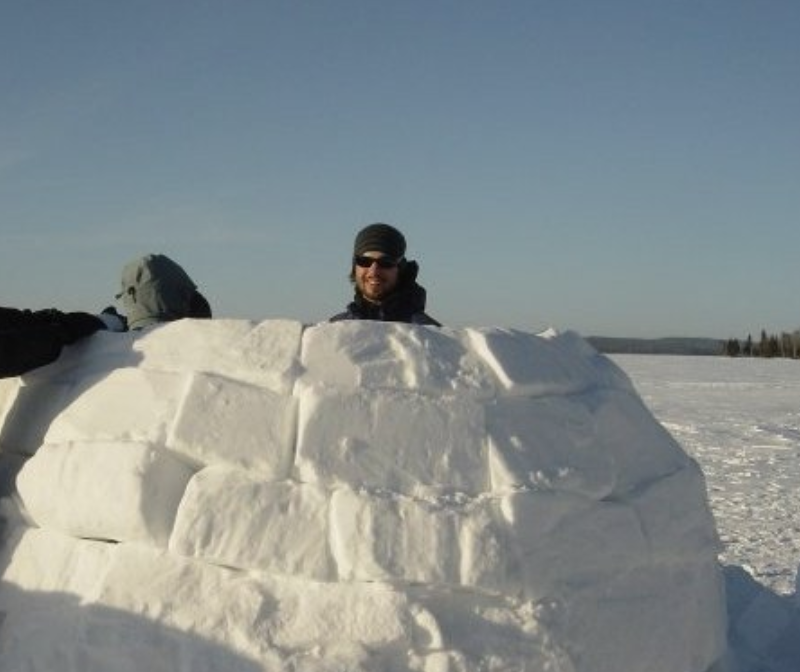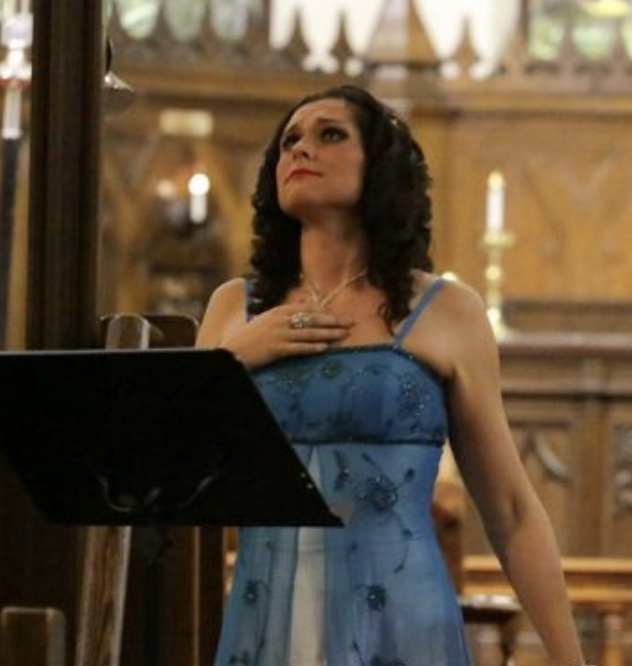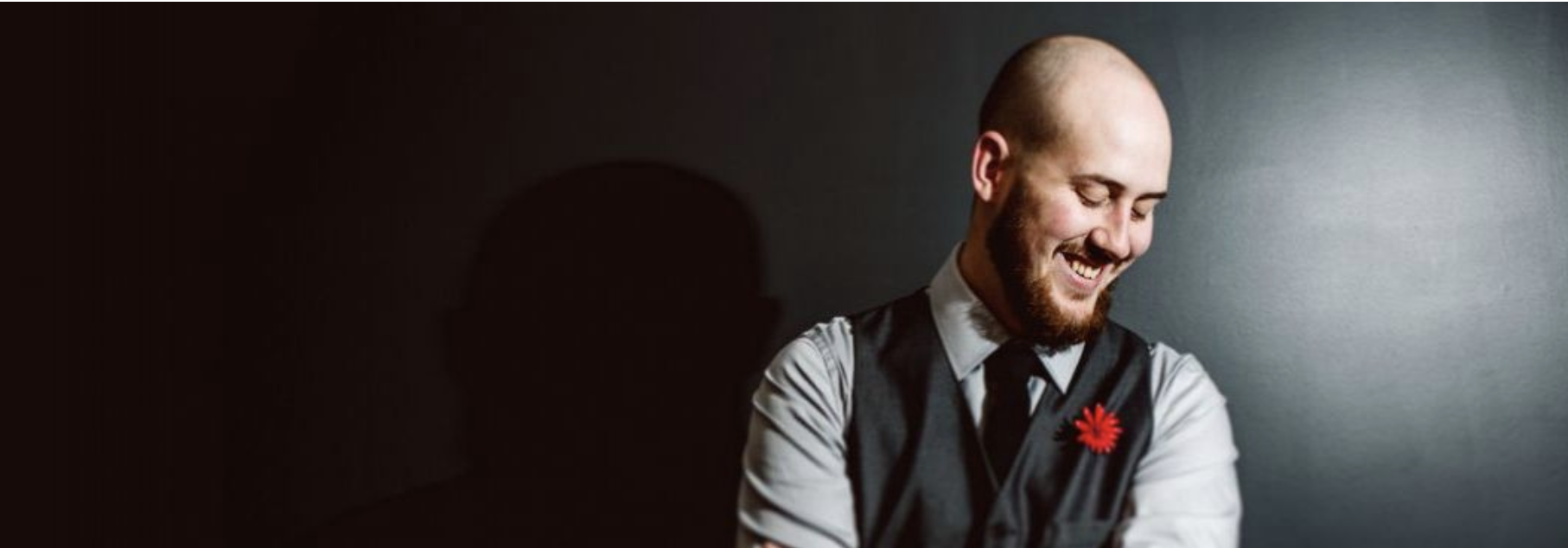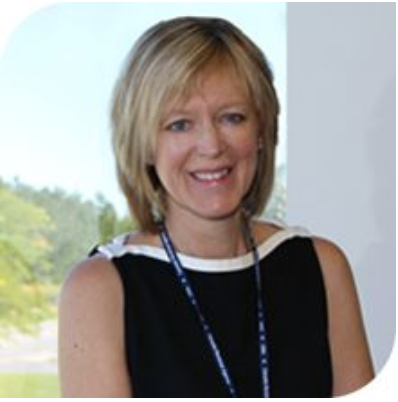Sioux Lookout, Ont. — Steve Dumonski's Grade 8 class at Sioux Mountain Public School seems normal enough: 25 or so kids busily doing their work. But it's actually pretty unique. Until recently, a lot of the kids just didn't come to class.
Watch CBC Full Story: https://www.cbc.ca/player/play/2682216801/
"We have kids that you're happy that they showed up that morning," Dumonski said. "You're happy when they walk through the door, whether it's on time or it's at 10:30 in the morning. I know the students who are struggling to be here."
Dumonski, whom the students call Mr. D, grew up in northwestern Ontario and understands what it can be like to live in one of the poorest and most-troubled areas of the country.
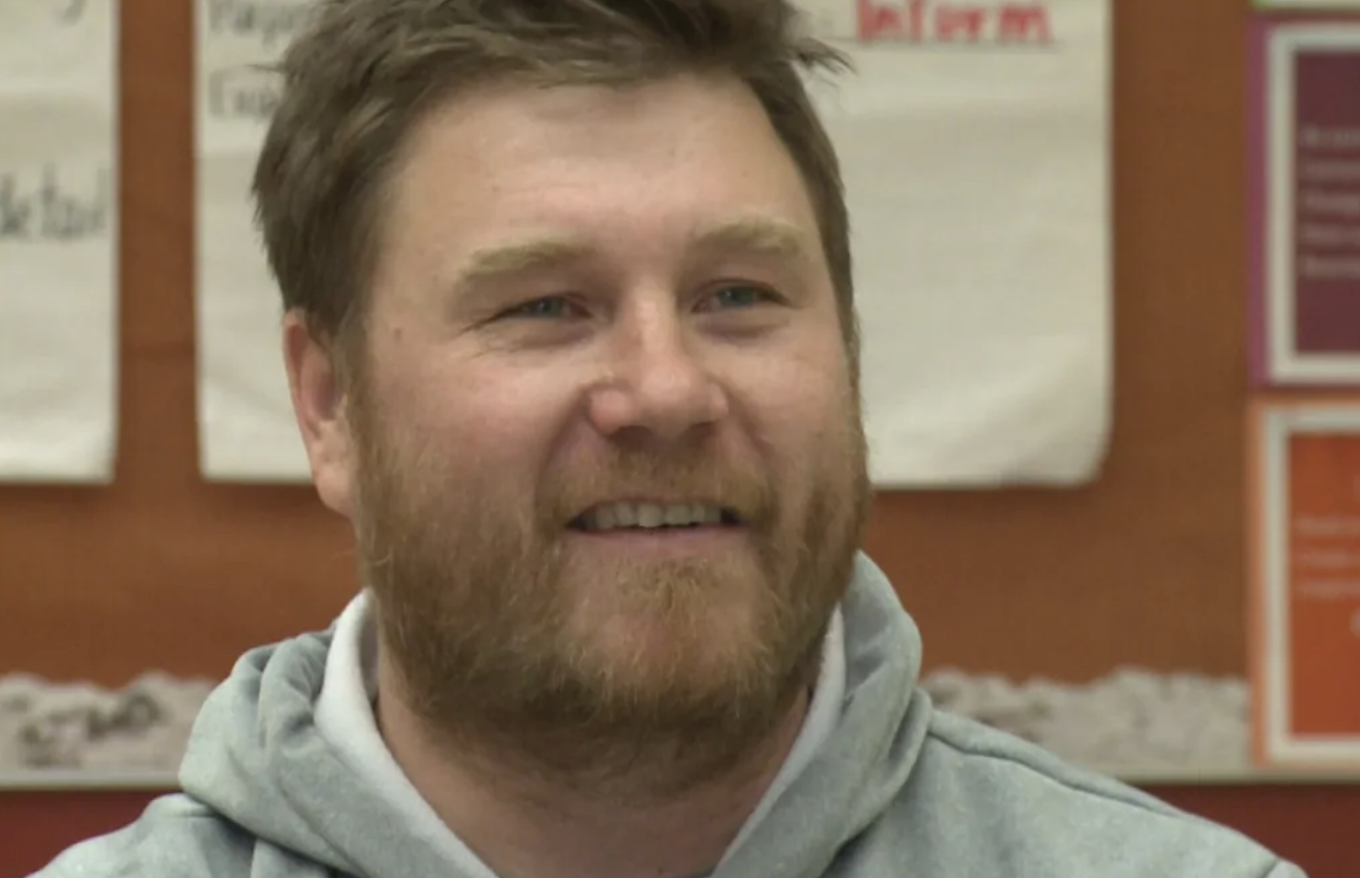
"The boys are over here in the woods getting high on marijuana or crack or whatever it might be. That's reality," he said. "And I've had two students in the past try to commit suicide on a weekend. One tried to commit suicide after school right here."
Steve Dumonski (pictured right) is a teacher and hockey coach at Sioux Mountain Public School. He says many of his students have problems with substance abuse and some have been victims of sexual abuse. They used to spend their days doing drugs and skipping school, but hockey has helped draw them back to class, he says. (Leonardo Palleja/CBC)
Dumonski says some of his students have also been victims of sexual abuse.
These are some of the big problems facing the Keewatin-Patricia School Board, which oversees 23 schools in northwestern Ontario spread over an area the size of New Brunswick, including those in Sioux Lookout, a community of about 5,000 people 400 km northwest of Thunder Bay.
Watch "Hockey Academy" clip: https://www.cbc.ca/player/play/2682216809/
Coach Steve Dumonski helps one of his young students navigate the ice in Sioux Lookout, Ont., where schools are using hockey to keep kids out of trouble 1:01
Recently, the board came up with a solution to get kids more engaged in school: get them playing hockey.
It made hockey part of the phys-ed curriculum at several of its schools. At Sioux Mountain, students in grades one to six hit the ice once a week and grades seven and eight twice a week.
The program, dubbed "hockey academy," was started in 2012 by a gym teacher in Kenora named Dave Tresoor who noticed that some kids had no problem showing up regularly for hockey practice but had poor attendance when it came to school.
Sioux Lookout is a remote community of roughly 5,000 in northwestern Ontario, about 400 km northwest of Thunder Bay. 'There's a lot of drug and alcohol problems,' says resident Irene Shakakeesic, who is trying desperately to keep her grandchildren from encountering the same kind of addiction problems that her own daughter suffered from. (Leonardo Palleja/CBC)
"I looked at it as an opportunity to take something that they really liked, bring it into the school world, and we can combine the two, and it's been very successful," he said.
Twenty-two of the 23 kids who participated that first year have since graduated, and the program now exists in three communities in the region, with plans to expand to more next year.
No school, no ice time
The kids at Sioux Mountain don't have to pay to participate in the program, which is sponsored by Hockey Canada, and get brand new hockey gear through Jumpstart, a charitable organization focused on children and sport.
The only catch is if you don't go to school, or don't do your school work, you don't get on the ice.
Dumonski says that in the three months since the program was introduced at Sioux Mountain, it has turned one of his troubled students, 13-year-old Jericho Crane, around.
"He was late all the time, wasn't coming to school regularly, getting into some trouble at school, out of school. Hanging out with some older high school kids that were kind of leading him in the wrong direction," Dumonski said.
Jericho says that before he joined the hockey program, he had little interest in school.
"I wouldn't listen and all that. Just slack off, wouldn't do my work," he said.
He says having hockey in his life has made it easier to pay attention in class.
It helps that Dumonski is a mentor he can relate to both in the classroom and on the ice. He's Jericho's teacher and coach, but he also played five seasons of professional hockey in the East Coast Hockey League and the now defunct United Hockey League. He was invited to three NHL training camps.
Asked where he would be if he didn't have the hockey academy, Jericho says he's not sure but probably nowhere good.
"I'd probably be out of school, being out there and just getting into other stuff like bad stuff, mischief, like drugs and all that," he said. "[Hockey] keeps me out of that. So, I'm so lucky I have hockey just to get me away from that stuff."
One of the clearest signs the hockey program in Sioux Lookout is working can be seen after school at the local outdoor rink, where the ice is crowded with students like Jericho, practicing their moves and dreaming of making it.
"It's getting me out of trouble," says Jericho. "It's helping me. It's helping me on my hockey, my career. I'm hoping one day I'll be in the NHL."
Attendance up since program began
On a recent Thursday morning at Sioux Mountain, there is another sign the program is working: kids are arriving at school 45 minutes before the first bell. There are 105 kids in the hockey program, about a quarter of the school, and their attendance is up by 25 per cent since the program began, according to the principal.
The Shakakeesics live right across the street from the school, so they don't have to leave for class until the bell rings.
That Thursday, Shayden Shakakeesic-Day, 8, Jase Shakakeesic-Day, 7, and Honor Day, 6, are excited because they have hockey academy. They play with a makeshift tape puck in the basement before their grandmother, Irene Shakakeesic, calls them up to make their lunches.
Shakakeesic has taken care of the three since they were little, and they call her mom. Their biological mother struggled with addiction, and the siblings would have gone into the care of social services had Shakakeesic not stepped in.
"There's a lot of drug and alcohol problems [in the community]," Shakakeesic said. "That's one of the things that I really worry about my grandkids, especially with the problems that their mom had."
She says she is determined to keep them away from drugs and alcohol and in school.
"I kind of worry about, you know, what direction they're going to take as they get older," she said. "So, I'm kind of hoping with the hockey academy that could be an incentive for them to keep them in the sport. I want them to have a successful life."
Graduation is the goal
Back on the ice, Dumonski is running the Grade 7 and 8 students through their drills. Some of the kids have played hockey before; others can barely skate. Dumonski is teaching the kids skills, but he might also be filling a hole in their lives that goes beyond sport.
"Sometimes, you do feel like a dad," he says. "I have kids that come and give me a hug every morning. My daughters don't do that. You know what I mean? I try to have a connection with them, joke around with them, lay the hammer down when I have to."
The ultimate goal of the academy, even though the kids might not realize it, isn't to make them into hockey players but to get them to graduate. Graduation rates in the region are below the national average. Among students who identify as aboriginal, the rates are some of the lowest in the country: 53 per cent for four-year graduates and 61 per cent for those who take five years.
"If I graduate high school, I'll be the first one in my family to graduate high school," Jericho said. "That is kind of … exciting."
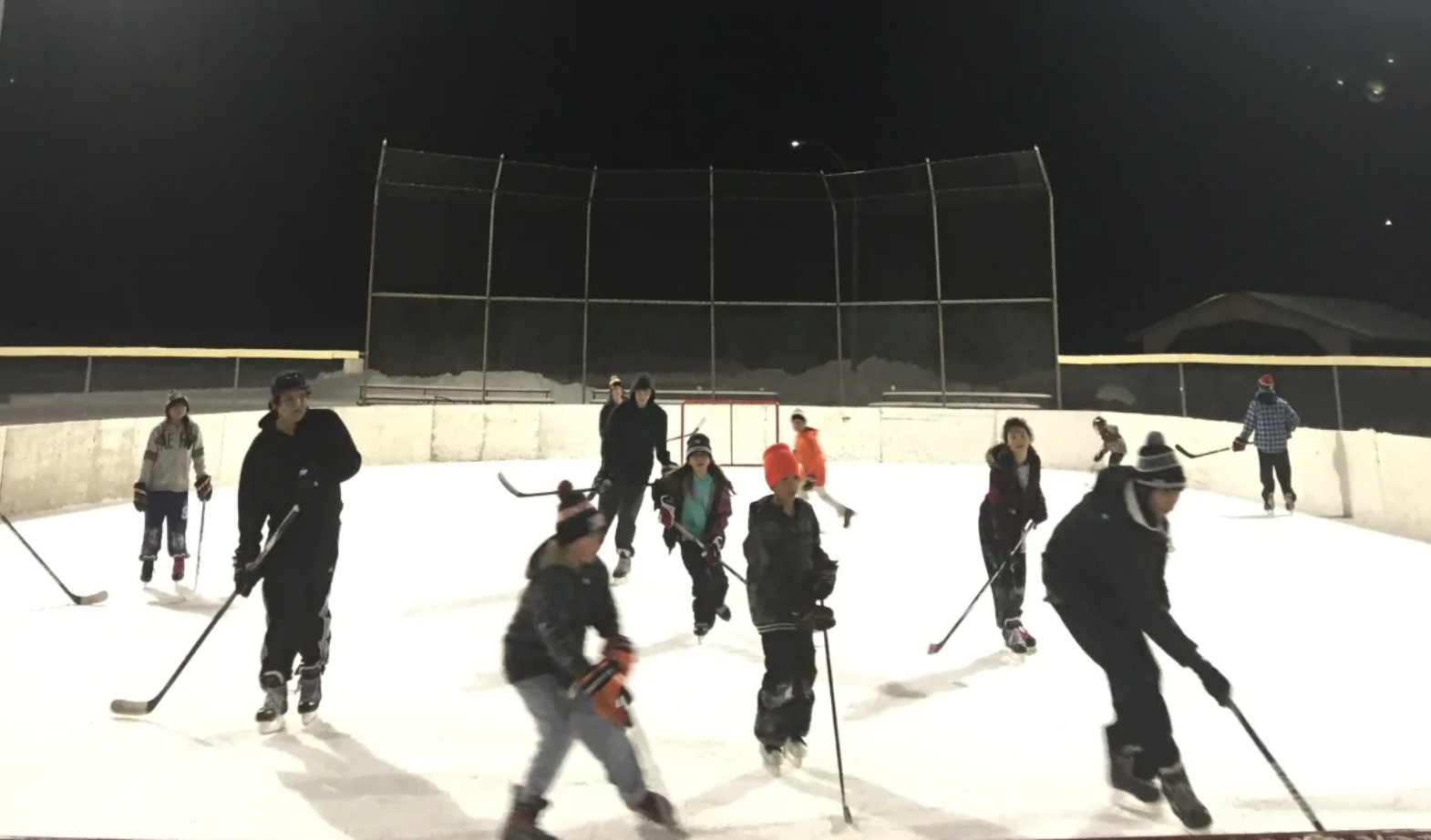
The popularity of the hockey program is evident even after school, when many kids continue practising in hopes of one day making the big leagues.
ABOUT THE AUTHOR
Nick Purdon
Current Affairs Correspondent
Nick Purdon is a Current Affairs Correspondent with CBC News' The National. You can follow him on Twitter at @nickpurdoncbc
CBC's Journalistic Standards and Practices|About CBC News


